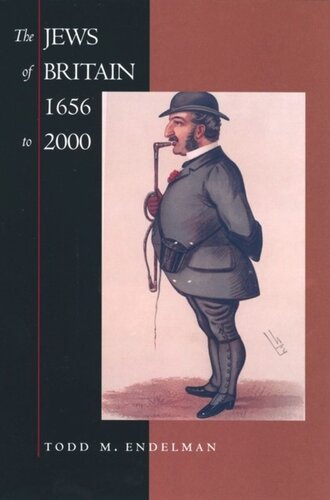

Most ebook files are in PDF format, so you can easily read them using various software such as Foxit Reader or directly on the Google Chrome browser.
Some ebook files are released by publishers in other formats such as .awz, .mobi, .epub, .fb2, etc. You may need to install specific software to read these formats on mobile/PC, such as Calibre.
Please read the tutorial at this link: https://ebookbell.com/faq
We offer FREE conversion to the popular formats you request; however, this may take some time. Therefore, right after payment, please email us, and we will try to provide the service as quickly as possible.
For some exceptional file formats or broken links (if any), please refrain from opening any disputes. Instead, email us first, and we will try to assist within a maximum of 6 hours.
EbookBell Team

5.0
68 reviewsIn Todd Endelman's spare and elegant narrative, the history of British Jewry in the modern period is characterized by a curious mixture of prominence and inconspicuousness. British Jews have been central to the unfolding of key political events of the modern period, especially the establishment of the State of Israel, but inconspicuous in shaping the character and outlook of modern Jewry. Their story, less dramatic perhaps than that of other Jewish communities, is no less deserving of this comprehensive and finely balanced analytical account.
Even though Jews were never completely absent from Britain after the expulsion of 1290, it was not until the mid- seventeenth century that a permanent community took root. Endelman devotes chapters to the resettlement; to the integration and acculturation that took place, more intensively than in other European states, during the eighteenth century; to the remarkable economic transformation of Anglo-Jewry between 1800 and 1870; to the tide of immigration from Eastern Europe between 1870 and 1914 and the emergence of unprecedented hostility to Jews; to the effects of World War I and the turbulent events up to and including the Holocaust; and to the contradictory currents propelling Jewish life in Britain from 1948 to the end of the twentieth century. We discover not only the many ways in which the Anglo-Jewish experience was unique but also what it had in common with those of other Western Jewish communities.